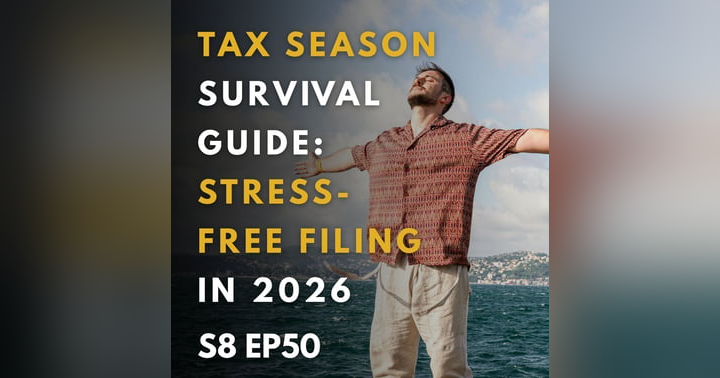6 Practical Steps to Connect Faith and Financial Habits

Transform Your Financial Habits: Aligning Spending with Your Values
Welcome to another insightful episode, where we dive deep into practical strategies for aligning your financial habits with your core values and vision. I'm Ralph Estep Jr., your host, and I'm thrilled to share some foundational steps to help you take control of your finances while keeping your faith and personal goals at the forefront. In this post, we’ll explore 6 practical steps to connect faith and financial habits so you can steward your resources with clarity, purpose, and peace.
Setting the Stage for Financial Growth
Starting a business isn't a path to instant riches nor an easy journey. It's a challenging road with long hours and tough decisions. The secret is surviving and growing, finding support through shared experiences. In this podcast, we touch on real issues that affect small business owners like you, focusing on sustainable growth without succumbing to burnout.
Rebranding and New Beginnings
Exciting changes are on the horizon for our show. We’re transitioning to become "Financially Confident Christian," a name that truly reflects our mission and the values we stand for. We'll continue to provide faith-based financial guidance to help you tackle debt, build savings, grow your business, and break free from financial shame. Stay tuned for our fresh look and new resources coming your way
Defining Financial Habits
One thing is clear: financial freedom isn’t about chasing hacks or hype. It’s about building your business and financial habits with purpose and strategy. Each week, we delve into topics such as cash flow management, meal planning, and financial accountability, providing practical insights that are immediately applicable.
The Cash Envelope System: A Tangible Approach
We explore the cash envelope system, which involves using physical cash to manage specific budget categories. It’s an effective way to promote mindfulness about spending by establishing a clear stopping point when funds run out. Our discussion with Brenda highlights the system's merits, especially when facing budgeting challenges.
Meal Planning: A Sanity Saver
Another important area we tackle is meal planning as a strategy to curb unnecessary spending and reduce stress. Planning meals ahead of time prevents costly takeouts and minimizes food waste. Mark emphasizes the need for flexibility in meal plans to accommodate changes in our weekly routines without losing focus.
Grocery Shopping: Shopping Lists with Purpose
Once meal plans are in place, a detailed grocery list helps maintain control and avoid impulse buying. Susan’s inquiry about managing sale items encourages a thoughtful approach—purchasing staples within budget constraints helps remain disciplined and intentional.
Weekly Financial Check-ins: Sustaining Momentum
Regular financial check-ins are vital to stay on course. Kevin brings up the challenge of involving a partner in financial planning. Effective communication and shared financial goals are essential. Tailoring strategies to fit your unique situation can foster unity and cooperation, avoiding unnecessary strain on relationships.
Necessity vs. Desire: The Needs and Wants Dilemma
We also discuss distinguishing between needs and wants, which is crucial for living below your means. As Maria points out, societal evolutions make some wants feel like needs. An honest assessment and prioritization of truly essential expenditures can lead to meaningful financial shifts.
Reassessing Treats: The Coffee Shop Challenge
Finally, we dive into the coffee shop culture, where David questions the necessity of luxury coffee habits. Our challenge is to evaluate whether these treats bring genuine joy or are simply habitual financial leaks.
Conclusion: The Joy of Living Below Your Means
The overarching theme of our series is the joy and freedom found in living below your means. It’s about intentional actions that align with your financial goals and values. Practice self-grace, celebrate small victories, and remember that progress is a journey, not a destination.
Thank you for joining us on this financial exploration. Your commitment to better habits and financial stewardship will pave the way for peace, purpose, and prosperity in all areas of life. Be sure to visit financiallyconfidentchristian.com for resources and inspiration to support you on this journey.












